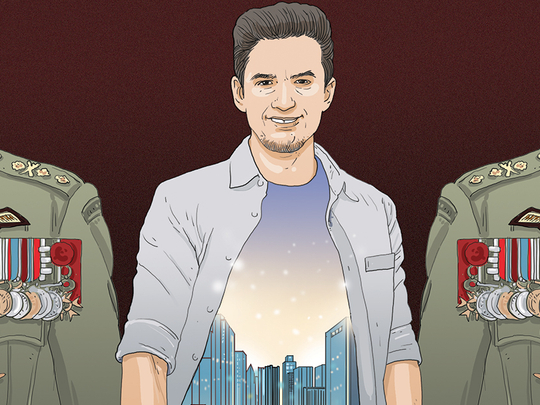
There are some important signs of hope that the Arab world can find its way back to peace and prosperity, even if the current political scene has to be the worst that it has experienced since the chaos of the aftermath of the First World War. The failed states, the enduring civil wars, and the rise of terrorists, combined with the terrible stories emerging from Aleppo of mass starvation and the mass slaughter of civilians rightly dominate the headlines, especially as the confrontation between Russia and America in Syria is escalating into one the the most dangerous clashes in decades.
The most important area of hope lies in the 60 per cent of the Arab world who are under 25 years old. These young men and women are growing up in a digital age where they are connected to a much wider world than that offered by their village elders, religious leaders, or government media. They know that alternatives exist and should be possible given good governance and modern thinking. Of course some of these people use their connectivity to each out to radicals and terrorists, but millions more are logging on to chat to their friends and build a much wider social network than was possible even ten years ago. It is also important that while that network will include their immediate neighbours, it can also include their cousins who might have emigrated to Australia or the US, and will be offering thoughts from a much wider world than a particular suburb in Baghdad or Tripoli.
The political effect of this generation shift will be slow but very powerful, and is likely to build an irresistible demand for better governance, such as for any government to limit its role in the business sphere to supporting deregulation and innovation. The next generation of young people of the new Arab world will not be satisfied with flag waving and unquestioning acquiescence in a government’s rule, and regimes that recognise this will score a valuable success in building a more secure future for their embattled countries.
A second important factor restoring stability in the Arab world will be the increasing dominance of military rulers seeking to roll back the anarchy of the 2010s.
Bizarre reality
It is bizarre that after so many decades of military dictators, the Arab world might seek some hope from more generals, but after so many years of disastrous anarchy there is a growing public recognition that almost anything would be better.
The challenge facing anyone seeking to bring stability to Iraq, Syria and Libya, and Somalia or South Sudan, is that a balance of local powers can only create a relative stability that is fragile and can fail, as has been shown by Lebanon’s relatively benign experience where the balance of powers has not led to any effective government, and much more dramatically in other cases such as Iraq which have been much less successful.
The other military route is for a dominant force to impose stability across the board. It is extremely unlikely that such a force will come from outside the region, after the miserable experience of the Americans in Iraq.
So any future military solutions for most failed Arab states will have to come from the local remnants of the armed forces, where enough men with enough guns can operate with enough discipline to achieve dominance, and then attract regional or international support to enforce their rule.
This is the solution that Bashar Al Assad is keen to promote in the midst of his brutal civil war, but he operates with the handicap of the range of horrors that his forces have perpetrated on his people which make Al Assad’s route to dominance in Syria hard to stomach.
Instead, the career of the former Field Marshal Abdul Fattah Al Sissi is a more likely role model as he took over control of Egypt and became president with the backing of the armed forces, bringing a secular neutrality to the government which was welcomed by even the exhausted liberal opposition who had seen what might have happened under President Mohammad Mursi’s Muslim Brotherhood rule.
If the future generals-turned-presidents emerge in countries such as Syria or Libya in the next five years, they will need a further five years to establish their rule. The deep divisions suffered by any country that has endured the tragedy of civil war will take many years to heal and the military are not natural healers.
The millions of refugees will make their own choices about whether they trust the new military rulers (who may be labelled ‘nationalist’ by then).
It will be a real tragedy if such future governments prioritise revenge above reconciliation, and fill their jails with former opposition militia members, allowing its secret policemen to run amok. If that happens they will fail and will restart the whole miserable story.
Any future government that wants to succeed needs to reach out and engage the young and connected generation.
These young people may welcome the stability offered to them, but will be looking for open and innovative thinking and that will be the real test of any general who comes in from the field to take over a government.











